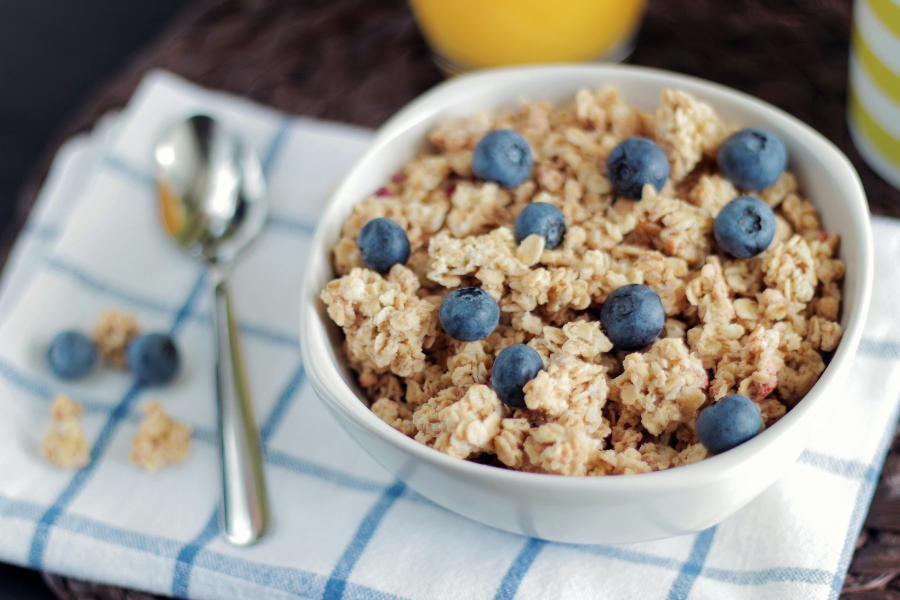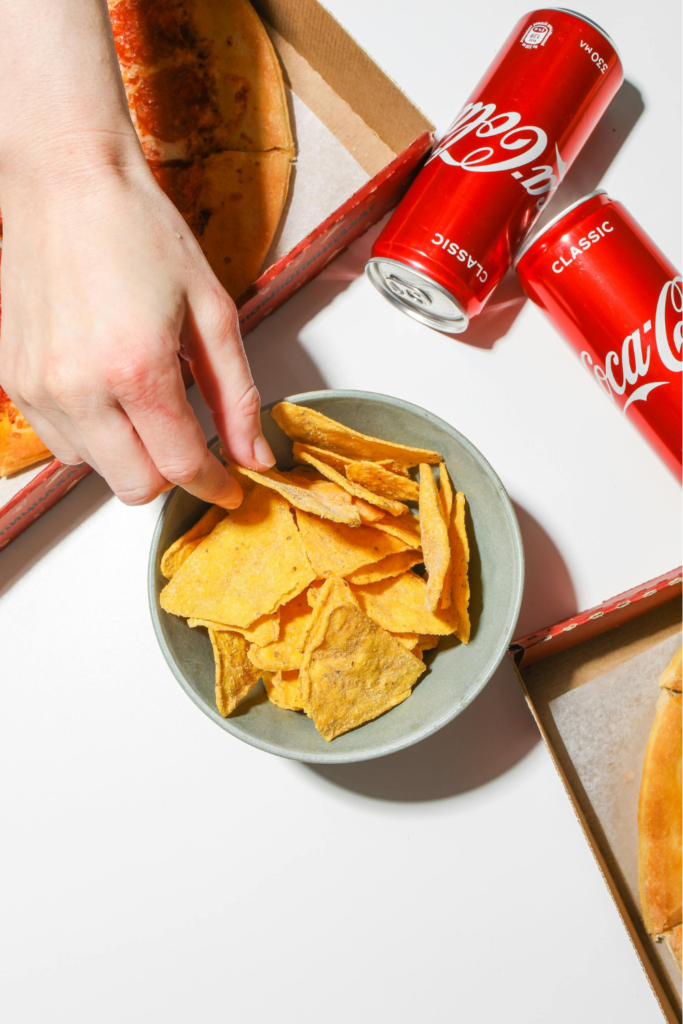Why would you want to keep your leptin levels high for fat loss? Well, leptin is what you call your best friend hormone when it comes to losing fat. If you can keep leptin as high as possible, you would have no trouble maintaining a caloric deficit.
We should know by now, when it comes to losing fat, a caloric deficit is non-negotiable.

In this article, we are going to address:
- What is leptin?
- Who naturally has high levels of leptin?
- Who naturally has low levels of leptin?
- Leptin Resistance
- Ways to keep leptin levels up
What is Leptin?
Leptin is a satiety hormone made from adipose tissue or fat cells. It sends a signal to the brain indicating a feeling of fullness after consuming some food. Leptin has also been referred to as the “fat burning” hormone.
Leptin is responsible for everything from:
- Appetite regulation
- Body weight management
- Maintenance of healthy body fat levels
Your ability to build muscle in a caloric deficit is also dictated by high leptin levels. If your training is still good despite eating a low-calorie diet, you can still build muscle.
Who Naturally Has High Levels of Leptin?
People who naturally have high levels of leptin would be:
- Obese individuals
- Overweight individuals
- Individuals with high body fat percentages
People in any of these 3 categories can lose fat at an incredibly rapid paste. High body fat levels promote circulating leptin levels, thus indicating a fast metabolism.
Someone in any of these 3 categories can lose pure body fat quickly just by virtue of reducing their caloric intake to a large degree. They don’t even have to be super strict with their protein intake.
The excess fat does not increase their body’s demand for high protein. They just need to eat enough protein to be reasonably satiated in an energy-deficit and increase their daily activity level.
Obese, overweight, and people with high body fat percentages also would not receive any of the potential downsides of eating at a caloric deficit, which includes:
- Hormonal issues
- Trouble falling asleep at night.
- Impaired training performance
- Lack of energy
Who Naturally Has Low Levels of Leptin?
People who naturally have low levels of leptin would be:
- Lean individuals
- Underweight individuals
- Individuals with low body fat percentages
If you’re someone in any of these 3 categories, you must take fat loss significantly slower. The less body fat available on your body, the harder it will be for you to sustain a caloric deficit.
Below 10% body fat does not promote an optimal muscle building environment for men. Below 15% body fat does not promote an optimal muscle building environment for women.
This doesn’t mean that you can’t get below these body fat percentages. Just understand that it will be harder to build or even retain muscle dieting below these numbers.
Reason being, we are wired for survival. Your body has a greater desire than making you muscular and lean. It wants to keep you alive.
When body fat levels get too low, leptin levels drop significantly. This can signal to your body that you are literally starving to death.
With leptin levels that low, you are more at risk for:
- Muscle loss in a calorie deficit
- Ravenous hunger in a calorie deficit
- A decline in training performance
- A drop in testosterone if you are a man.
- Missed periods if you are a woman.
If you are already decently lean and you want to get a little leaner, you must be more methodical with your fat loss.
You would have to eat at a small to moderate deficit to keep leptin elevated and retain as much muscle as possible.
Understanding Leptin Resistance

Leptin resistance is a condition where your brain is not receiving the signal from your fat storage that you are satiated after eating a meal. This is not a topic that is commonly talked about in the health and fitness community, but it is important.
This condition is common in overweight and obese people. Yes, these individuals naturally have high levels of leptin but because of factors such as dietary habits, stress, or lack of sleep they may find their always hungry and never feel full.
Leptin resistance is easily fixable, and we’ll talk about how to do that in the next part of the article.
Ways to Keep Leptin Levels Up
1. Practice Intermittent Fasting
Intermittent fasting is great for improving leptin levels. With fasting, you are giving your body a period of time each day to metabolize body fat for energy. If you fast for 12-18 hours daily, you will see:
- A decrease in blood sugar or insulin levels, which basically reduces your risk of developing type 2 diabetes.
- An 11% increase in metabolic rate
- Autophagy, which is basically anti-cancer benefits.
- Elevated levels of HGH or human growth hormone, also known as your fitness hormone
In the context of leptin, intermittent fasting enhances leptin by transitioning your body from burning glucose or sugar for energy to burning fat for energy. Therefore, promoting a feeling of fullness.
You don’t have to practice intermittent fasting the way it’s commonly practiced in the health and fitness community. There is an unpopular way of doing IF that doesn’t involve a strict start and stop time to your day of eating.
If you want to learn more about this approach to intermittent fasting, check out this article The Most Lifestyle-Friendly Approach to Intermittent Fasting.
2. Increase Your Intake of Protein

A big problem people have when it comes to maintaining high levels of leptin is getting sufficient protein.
If you’re in a caloric deficit and you’re under-consuming protein, your body will trigger hunger until you feed it enough protein.
Out of all 3 macro-nutrients, protein has the highest thermic effect. It takes longer for your body to digest protein in comparison to carbohydrates and fats.
This is why proper protein intake is so important on a weight loss plan, because of its high satiety factor.
Based on the research, the amount of protein you need is very minuscule.
If you are a leaner person, you only need about 0.8grams of protein per pound of body weight.
If you are someone who carries significantly more fat, you only need about 0.6 – 0.7grams of protein per pound of body weight.
If you need a resource on protein-rich foods for dieting, check out this article 11 Best Sources of Protein for Promoting Fat Loss.
3. Eat More Complex Carbohydrates
Carbohydrates are the main macro-nutrient that supports the drop-off of leptin. It is the best possible fuel source for your body.
Carbs do not cause fat gain, despite popular belief. What causes fat gain is eating in an excessively high caloric surplus.
In other words, if you eat too many calories, more than what your body can capitalize on for muscle growth, you will store the remaining calories as body fat.
By structuring your diet around complex carbs or slow-digesting carbs, you would do the best job at keeping your leptin hormone elevated as you endure an energy deficit.
If you need a resource on choosing quality carbohydrates, check out this article 9 Best Carbohydrate Foods for Satiety and Fat Loss.
4. Go for Walks in a Fasted State
Walking is not talked about enough when it comes to enhancing leptin. Walking burns a higher percentage of fat as fuel, whereas running burns a higher percentage of carbohydrates as fuel.
Why is this significant?
Well, when you walk or do any kind of low-intensity steady state activity for long periods of time, you are utilizing mostly fat to fulfill these activities.
Low intensity activity performed in a fasted state suppresses your appetite, therefore signaling leptin.
This is the case if you are:
- Partner Dancing
- Doing household chores
- hiking
Let’s say you are fasting 6-8 hours from the time you wake up in the morning. You have some sparkling water and maybe some black coffee to blunt hunger. 5-hours into your waking fast, you start to feel hungry.
If you go for a 45-minute walk outside in nature, the hunger pains would diminish due to the walking increasing fat metabolism.
Essentially, you would be able to fast for another hour or 2 because of the boost in leptin.
If you want to read more about the amazing benefits of walking, check out this article Why Walking is the Best Exercise for Long-Term Fat Loss.
5. Get Adequate Sleep
Adequate sleep is essential for maintaining high leptin levels. If you have too many nights of poor sleep, not only will leptin levels decline, but your ghrelin levels will increase. Ghrelin is the antagonist hormone to leptin.
If ghrelin remains high, you will have trouble controlling hunger. If you can’t control hunger, you end up in a high-caloric surplus. If you end up in a high-caloric surplus, you gain fat.
Elevated levels of cortisol is another problem due to not sleeping enough. Cortisol is a stress hormone.
If your body is in a consistent state of high stress for too long, it damages your metabolism. Even if you’re doing everything else right, like:
- Being in a calorie deficit
- Strength training a few days week.
- Getting sufficient protein
- Eating a balance of fats and carbs
- Maintaining a highly daily step count
If you are only sleeping 4-5 hours a night, you may lose weight but that weight you’re losing may include lean body mass. You don’t want that to happen.
For optimal hormonal functioning, you should be getting at least 7-9 hours of sleep every night.
6. Have Periods Eating at Maintenance Calories
A maintenance phase is one of the best things you can do to bring up leptin. It’s not conducive for you to be in a calorie deficit all year around. Eventually, your fat loss will plateau.
If everyone could just eat at a 3,500 calorie-deficit a week, we would all be losing fat every week until we have 0% body fat on us. Obviously, this is not conducive for staying alive.
Instead, for every 3-4 months you’re in a deficit, depending on how much weight you need to lose, take 1-3 months to eat a maintenance caloric intake.
After that, you go back into a deficit until your weight loss plateaus again. From there, you would do another maintenance period with your body’s new maintenance calories calculated.
This process should be repeated until you reach your goal body weight.
By doing this, not only are you mastering the skill of fat loss, but body weight maintenance as well.
Based on the research, this strategy would:
- Significantly boost leptin.
- Repair your hormones.
- Better satiate you.
- Improve your training Performance.
- Promote muscle growth.
- Allow for better sleep.
If you are a leaner person, with not much fat you want to lose, you may want to have a maintenance day once a week or once every 2 weeks.
This is especially important since leaner people have lower levels of leptin. Therefore, they would have a harder time with a calorie deficit.
If you want to learn more about the importance of maintenance phases, check out this article Eating Maintenance Calories for Muscle Growth and Fat loss.
Conclusion
The key takeaways from this article are:
- Leptin is the hormone that supports your ability to eat in a caloric deficit.
- People who carry more fat will naturally have higher leptin levels.
- People who carry less fat will naturally have lower leptin levels.
- Follow these fat loss best practices to improve leptin resistance and keep leptin levels high. These best practices include intermittent fasting, eating sufficient protein, eating more complex carbohydrates, going for walks in a fasted state, getting adequate sleep, and taking time out of the year to do maintenance phases.
Aside from leptin, there are other hormones you must manage if you want lose fat.
If you want to learn more about those hormones, check out this article 7 Hormones You Must Manage on a Weight Loss Program.

4 Responses